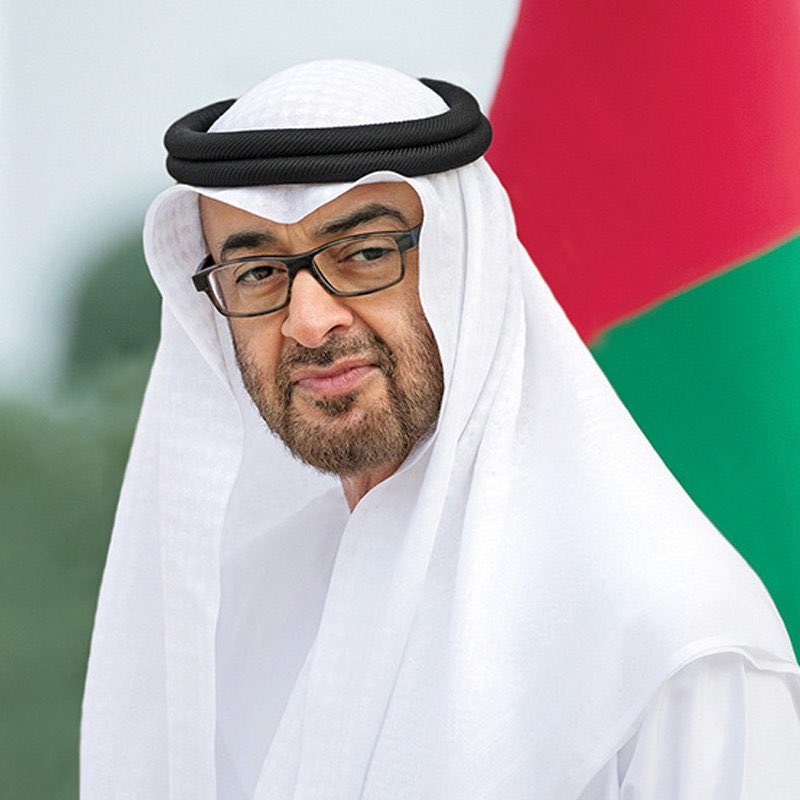Afghanization, Finlandization, And The Politic-ization Of Place Names
Recent news has been filled with analysis that attempts to make sense of current events by comparing them to past moments in history—and applying some of the terminology that originated in the midst or aftermath of those earlier events. Prominent examples include terms based on the combination of a place name and the ending -ization, such as Afghanization (in the context of the withdrawal of US forces from Afghanistan) and Finlandization (in the context of the Russian invasion of Ukraine).
Not only are such terms used in fraught political discussions, use of the words themselves is often controversial due to debates about what they mean exactly as well as how—or whether—they should be used.
Add context to your reading of current events with this list of some of the -ization terms you’re most likely to encounter in historical analysis, along with explanations about the different meanings they can have.
Afghanization
The term Afghanization is most prominently used in the context of US forces in Afghanistan, particularly in the lead-up to and during the withdrawal of those forces in 2021. Specifically, it refers to the US strategy of attempting to return political and military control to Afghan forces. The term is also used separately to refer to ethnic and language assimilation within the country.
Africanization
The term Africanization can be used in a variety of ways. It can mean “to bring under African, especially Black African, influence or to adapt to African needs” or more specifically, “to make African, especially to give control of (policy, government, etc.) to Africans.” It is commonly used to discuss postcolonial Africa and post-apartheid South Africa. In this context, Africanization refers to restoring political, economic, and civil power to Black Africans.
Americanization
The word Americanization is used to refer to two separate ideas. In the early 1900s, many advocated for “Americanizing” the large number of new immigrants who were entering the United States at the time as a way to instill cultural values considered quintessentially “American.” During and after, this approach has faced criticism for forcing the loss of immigrants’ original cultures.
More currently, the word Americanization is often used to refer to the spread of American culture across the world, especially through American media and popular culture. This term can refer to the wide availability of American pop culture, which has been noted for its influence on many other nations’ cultures.
Arabization
The word Arabization is used to refer to a process of promoting Arabic language and Arabic culture in education, government, and media. In particular, Arabization is often used to describe government policies that enforce this process in countries that were formerly under the control of non-Arab colonizers.
balkanization
The term balkanization is sometimes applied when a large place or country divides up into smaller, more homogenous communities. It can also refer to conflict between various ethnic groups in one state. The term balkanization makes reference to the Balkans, also known as the Balkan Peninsula, which split into many small countries first after the fall of the Ottoman Empire and again after the fall of the Soviet Union and the breakup of Yugoslavia.
Dubaization
Dubaization refers to a rapid period of development of a city or area with futuristic architecture. Dubaization takes its name from the city of Dubai in the United Arab Emirates, which is known for its architectural development dating back to the 1990s.
Finlandization
Finlandization refers to the process by which a smaller country maintains a neutral or favorable policy toward a larger country due to influence from that larger country. Coined by political scientist Richard Lowenthal in the 1960s, the term references Finland’s neutrality toward the Soviet Union during the Cold War. A 1948 treaty stipulated Finland would remain neutral during the Cold War if in turn the Soviet Union refrained from invading the country. The term can have negative connotations, as it can imply one country is under the thumb of a more powerful one and has opted for neutrality under undue pressure.
Japanization
In economics, the term Japanization is used to refer to a period of deflation and economic stagnation in a country. The term references the nation of Japan, whose economic stagnation in the 1990s led to a severe financial crisis in what is now often referred to as the Lost Decade.
Latinization
The term Latinization has several distinct senses:
- Latinization can refer to the act of rendering a language into a script that uses the Latin alphabet. For example, a translator might Latinize a text by taking Chinese or Hindi characters and converting them to Latin letters.
- In religious context, Latinization can refer to the process by which non-Latin Christian churches were made to conform to the practices of the Latin and Roman Catholic Church, primarily during the Middle Ages.
- Latinization can also refer to a place becoming similar to places in Latin America. For example, US cities with large Hispanic populations, such as Miami, have been described as being Latinized.
Mongolization
The term Mongolization is often used to refer to the assimilation of language and culture that occurred by peoples who were conquered by the Mongol Empire. For many peoples, this process occurred over a long period of time and often involved their traditional culture slowly blending with Mongol culture.
Ottomanization
Ottomanization refers to the adoption of the culture of the Ottoman Empire by the peoples and places under its rule. Historically, this term has referred to the transition from the Christian, Greek traditions of the Byzantines to the Islamic, Turkish traditions and culture of the Ottomans.
Romanization
The term Romanization is often used to refer to the cultural influence practiced by the Roman Empire. At its peak, the Roman Empire encompassed an incredibly diverse range of countries and cultures, which allowed for a large-scale Romanization, the influence of which can still be seen today in the many languages, architecture, and cultures retaining Roman influences.
Sinicization
Sinicization refers to the spreading of Chinese culture, religion, and politics. The term Sinicization has also been used, including by the Chinese government, to refer to China’s policy of enforcing the assimilation of ethnic and religious minorities to Chinese practices. The beginning of the term is a version of Sino-, which comes from a Latin word referring to China and is used in many other terms referring to China or Chinese culture (such as Sinology).
Vietnamization
Vietnamization is the name given to a strategy employed by the Nixon administration as an attempt to end US involvement in the highly unpopular Vietnam War. The strategy intended for the US to transfer all military responsibility to South Vietnamese forces and prepare South Vietnam to fight North Vietnam. The process called Afghanization is sometimes likened to Vietnamization due to similarities in the failures and other aspects of the respective conflicts.
© 2025, Aakkhra, All rights reserved.
Afghanization, Finlandization, And The Politic-ization Of Place Names
Recent news has been filled with analysis that attempts to make sense of current events by comparing them to past moments in history—and applying some of the terminology that originated in the midst or aftermath of those earlier events. Prominent examples include terms based on the combination of a place name and the ending -ization, such as Afghanization (in the context of the withdrawal of US forces from Afghanistan) and Finlandization (in the context of the Russian invasion of Ukraine).
Not only are such terms used in fraught political discussions, use of the words themselves is often controversial due to debates about what they mean exactly as well as how—or whether—they should be used.
Add context to your reading of current events with this list of some of the -ization terms you’re most likely to encounter in historical analysis, along with explanations about the different meanings they can have.
Afghanization
The term Afghanization is most prominently used in the context of US forces in Afghanistan, particularly in the lead-up to and during the withdrawal of those forces in 2021. Specifically, it refers to the US strategy of attempting to return political and military control to Afghan forces. The term is also used separately to refer to ethnic and language assimilation within the country.
Africanization
The term Africanization can be used in a variety of ways. It can mean “to bring under African, especially Black African, influence or to adapt to African needs” or more specifically, “to make African, especially to give control of (policy, government, etc.) to Africans.” It is commonly used to discuss postcolonial Africa and post-apartheid South Africa. In this context, Africanization refers to restoring political, economic, and civil power to Black Africans.
Americanization
The word Americanization is used to refer to two separate ideas. In the early 1900s, many advocated for “Americanizing” the large number of new immigrants who were entering the United States at the time as a way to instill cultural values considered quintessentially “American.” During and after, this approach has faced criticism for forcing the loss of immigrants’ original cultures.
More currently, the word Americanization is often used to refer to the spread of American culture across the world, especially through American media and popular culture. This term can refer to the wide availability of American pop culture, which has been noted for its influence on many other nations’ cultures.
Arabization
The word Arabization is used to refer to a process of promoting Arabic language and Arabic culture in education, government, and media. In particular, Arabization is often used to describe government policies that enforce this process in countries that were formerly under the control of non-Arab colonizers.
balkanization
The term balkanization is sometimes applied when a large place or country divides up into smaller, more homogenous communities. It can also refer to conflict between various ethnic groups in one state. The term balkanization makes reference to the Balkans, also known as the Balkan Peninsula, which split into many small countries first after the fall of the Ottoman Empire and again after the fall of the Soviet Union and the breakup of Yugoslavia.
Dubaization
Dubaization refers to a rapid period of development of a city or area with futuristic architecture. Dubaization takes its name from the city of Dubai in the United Arab Emirates, which is known for its architectural development dating back to the 1990s.
Finlandization
Finlandization refers to the process by which a smaller country maintains a neutral or favorable policy toward a larger country due to influence from that larger country. Coined by political scientist Richard Lowenthal in the 1960s, the term references Finland’s neutrality toward the Soviet Union during the Cold War. A 1948 treaty stipulated Finland would remain neutral during the Cold War if in turn the Soviet Union refrained from invading the country. The term can have negative connotations, as it can imply one country is under the thumb of a more powerful one and has opted for neutrality under undue pressure.
Japanization
In economics, the term Japanization is used to refer to a period of deflation and economic stagnation in a country. The term references the nation of Japan, whose economic stagnation in the 1990s led to a severe financial crisis in what is now often referred to as the Lost Decade.
Latinization
The term Latinization has several distinct senses:
- Latinization can refer to the act of rendering a language into a script that uses the Latin alphabet. For example, a translator might Latinize a text by taking Chinese or Hindi characters and converting them to Latin letters.
- In religious context, Latinization can refer to the process by which non-Latin Christian churches were made to conform to the practices of the Latin and Roman Catholic Church, primarily during the Middle Ages.
- Latinization can also refer to a place becoming similar to places in Latin America. For example, US cities with large Hispanic populations, such as Miami, have been described as being Latinized.
Mongolization
The term Mongolization is often used to refer to the assimilation of language and culture that occurred by peoples who were conquered by the Mongol Empire. For many peoples, this process occurred over a long period of time and often involved their traditional culture slowly blending with Mongol culture.
Ottomanization
Ottomanization refers to the adoption of the culture of the Ottoman Empire by the peoples and places under its rule. Historically, this term has referred to the transition from the Christian, Greek traditions of the Byzantines to the Islamic, Turkish traditions and culture of the Ottomans.
Romanization
The term Romanization is often used to refer to the cultural influence practiced by the Roman Empire. At its peak, the Roman Empire encompassed an incredibly diverse range of countries and cultures, which allowed for a large-scale Romanization, the influence of which can still be seen today in the many languages, architecture, and cultures retaining Roman influences.
Sinicization
Sinicization refers to the spreading of Chinese culture, religion, and politics. The term Sinicization has also been used, including by the Chinese government, to refer to China’s policy of enforcing the assimilation of ethnic and religious minorities to Chinese practices. The beginning of the term is a version of Sino-, which comes from a Latin word referring to China and is used in many other terms referring to China or Chinese culture (such as Sinology).
Vietnamization
Vietnamization is the name given to a strategy employed by the Nixon administration as an attempt to end US involvement in the highly unpopular Vietnam War. The strategy intended for the US to transfer all military responsibility to South Vietnamese forces and prepare South Vietnam to fight North Vietnam. The process called Afghanization is sometimes likened to Vietnamization due to similarities in the failures and other aspects of the respective conflicts.
© 2025, Aakkhra, All rights reserved.












